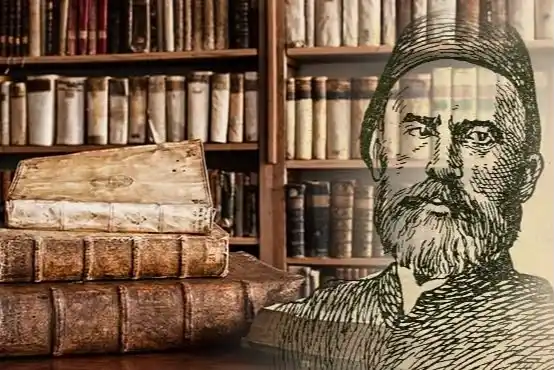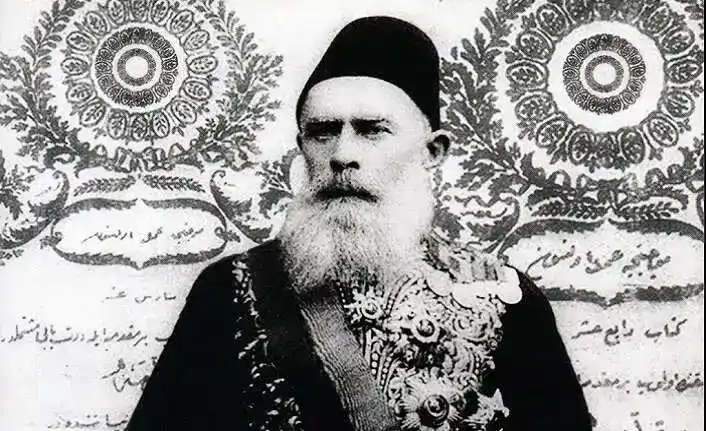The role of the State Historian in the Ottoman Empire was pivotal in documenting and preserving the rich history of one of the world’s most influential empires. These historians, often appointed by the Sultan, were responsible for chronicling significant events, royal decrees, and the daily affairs of the empire. Their meticulous records provide invaluable insights into the political, social, and cultural dynamics of the Ottoman period. This article explores the esteemed position of the State Historian in the Ottoman Empire, shedding light on their contributions to historical scholarship and their impact on our understanding of Ottoman history. Join us at DirilisPK as we delve into the fascinating world of the Ottoman State Historians.
State Historian in the Ottoman Empire; The Ottoman Empire existed on the stage of history for approximately 600 years and made significant developments in many areas during this period. The State Historian in the Ottoman Empire undertook important duties such as recording the history of the empire, documenting events chronologically and transferring them to the future. The State Historian in the Ottoman Empire not only kept records of events, but also documented the actions of the sultans, wars, conquests and the social structure of the state in detail. The State Historian in the Ottoman Empire adopted impartiality and objectivity in historiography and aimed to convey accurate and reliable information to future generations. As the official historians of the state, the State Historian in the Ottoman Empire made great efforts to organize state archives and institutionalize historiography.
The Origins of State Historiography in the Ottoman Empire
The tradition of the State Historian in the Ottoman Empire was shaped by the influence of the Central Asian Turkish states and the Islamic world. Historians who undertook similar duties in the Seljuk and Ilkhanate states played important roles from the foundation of the Ottoman Empire. The tradition of the State Historian in the Ottoman Empire was established starting from the period of Osman Gazi, with the aim of keeping the official records of the state and writing history.
The Institutionalization of Historiography
In the Ottoman Empire, the State Historian played an important role in the process of institutionalization of history writing. During the reign of Fatih Sultan Mehmet, Aşıkpaşazade, who served as the official historian of the state, recorded the events that took place since the foundation of the Ottoman Empire in chronological order. The work titled “Tevarih-i Al-i Osman” written by Aşıkpaşazade is one of the first examples of Ottoman history writing, and this tradition was later continued by other historians.
The Duties of the State Historian in the Ottoman Empire
In the Ottoman Empire, the State Historian undertook various duties as the official historian of the state. These duties included organizing the state archives, documenting the actions of the sultans, recording wars and conquests chronologically, and documenting the social structure of the state. In the Ottoman Empire, the State Historian adopted the principle of objectivity and impartiality in historiography and aimed to convey events to future generations accurately and reliably.

Prominent State Historians in the Ottoman Empire
Ashikpasazade (1400-1484)
Aşıkpaşazade came to the forefront as an important historian in the early periods of the Ottoman Empire. His work, “Tevarih-i Al-i Osman”, covers the events from the foundation of the Ottoman Empire to the reign of Bayezid II. Aşıkpaşazade documented in detail the actions of the Ottoman sultans, the wars and the social structure of the state in his work, thus gaining an important place in historiography.
Neşri (?-1520)
Neşri is known for his work titled “Kitab-ı Cihan-Nüma”, which describes the events from the foundation of the Ottoman Empire to the reign of Bayezid II. Neşri adopted impartiality and objectivity in historiography and recorded the events accurately and reliably. His work is considered one of the important sources of Ottoman historiography.
Idris-i Bitlisi (1457-1520)
Idris-i Bitlisi served as the official historian in the Ottoman Empire and is known for his work “Heşt Behişt”. This work documents in detail the actions of the Ottoman sultans, the wars and the social structure of the state. Idris-i Bitlisi adopted objectivity and impartiality in historiography and recorded events accurately and reliably.
Mustafa Efendi of Salonika (1538-1600)
Selaniki Mustafa Efendi stood out as an important historian in the Ottoman Empire. His work, “Tarih-i Selaniki”, covers events from the reign of Suleiman the Magnificent to the reign of Murad III. Selaniki adopted impartiality and objectivity in historiography and recorded events accurately and reliably.
Naima (1655-1716)
Naima served as the official historian in the Ottoman Empire and is known for her work titled “Tarih-i Naima”. This work covers events from the reign of Murad IV to the reign of Ahmed III. Naima adopted objectivity and impartiality in historiography and recorded events accurately and reliably. Naima is considered one of the important sources of Ottoman historiography.
The Importance of Historiography in the Ottoman Empire
The tradition of State Historiography in the Ottoman Empire is of great importance in terms of institutionalizing historiography and keeping official records of the state. State historians undertook the task of transferring accurate and reliable information to future generations by recording events chronologically. The State Historian in the Ottoman Empire adopted objectivity and impartiality in historiography and documented events accurately and reliably. In this way, the historical and cultural heritage of the Ottoman Empire was passed on to future generations.
The Evolution of State Historiography in the Ottoman Empire
The tradition of State Historiography in the Ottoman Empire has changed and transformed over time. While more chronological records were kept in the early periods, a more analytical and critical approach was adopted in historiography in later periods. This change enabled historiography to be addressed in a more comprehensive and in-depth manner. In this process, the State Historian in the Ottoman Empire took historiography to a more advanced level by using new methods and techniques in historiography.
The Last Periods of State Historiography in the Ottoman Empire
In the last periods of the Ottoman Empire, the tradition of state historiography continued, but underwent changes under the influence of modern historiography. During this period, a more scientific and objective approach was adopted in historiography, and events were addressed in a more analytical manner. In this process, the State Historian in the Ottoman Empire took historiography to a higher level by using new methods and techniques in historiography.
The Legacy of State Historiography in the Ottoman Empire
The tradition of State Historiography in the Ottoman Empire played a major role in the transfer of the historical and cultural heritage of the Ottoman Empire to future generations. State historians took on the task of transferring accurate and reliable information to future generations by recording events chronologically. The State Historian in the Ottoman Empire adopted objectivity and impartiality in historiography and documented events accurately and reliably. In this way, the historical and cultural heritage of the Ottoman Empire was transferred to future generations.
In the Ottoman Empire, the State Historian undertook important duties such as recording the history of the empire, documenting events chronologically and transferring them to the future. In the Ottoman Empire, the State Historian not only kept records of events, but also documented the actions of the sultans, wars, conquests and the social structure of the state in detail. In the Ottoman Empire, the State Historian adopted impartiality and objectivity in historiography and aimed to convey accurate and reliable information to future generations. As the official historians of the state, the State Historian in the Ottoman Empire made great efforts to organize the state archives and institutionalize historiography.
The tradition of the State Historian in the Ottoman Empire played a major role in the transfer of the historical and cultural heritage of the Ottoman Empire to future generations. The tradition of the State Historian in the Ottoman Empire is of great importance in terms of the institutionalization of historiography and the keeping of official records of the state. State historians undertook the task of transferring accurate and reliable information to future generations by recording events chronologically. The State Historian in the Ottoman Empire adopted objectivity and impartiality in historiography and documented events accurately and reliably. In this way, the historical and cultural heritage of the Ottoman Empire was transferred to future generations.
The tradition of the State Historian in the Ottoman Empire is also of great importance in terms of understanding and interpreting the history of the empire. State historians not only kept records of events, but also analyzed the causes, consequences and social effects behind these events. In this way, the history of the Ottoman Empire was understood in a more in-depth and comprehensive way. The State Historian in the Ottoman Empire adopted objectivity and impartiality in historiography, documenting events accurately and reliably. In this way, the historical and cultural heritage of the Ottoman Empire was passed on to future generations.
The tradition of the State Historian in the Ottoman State also constitutes an important example in terms of the evolution and development of historiography. Over time, Ottoman historians took historiography to a higher level by using new methods and techniques in historiography. In this process, a more analytical and critical approach was adopted in historiography, and events were addressed more comprehensively and in depth. The State Historian in the Ottoman State played an important role in this process of change and transformation and made historiography more scientific and objective.
As a result, the tradition of the State Historian in the Ottoman Empire undertook important tasks such as recording the history of the empire, documenting events chronologically and passing them on to the future. The State Historian in the Ottoman Empire not only kept records of events, but also documented the actions of the sultans, wars, conquests and the social structure of the state in detail. The State Historian in the Ottoman Empire adopted impartiality and objectivity in historiography and aimed to pass on accurate and reliable information to future generations. As the official historians of the state, the State Historian in the Ottoman Empire made great efforts to organize the state archives and institutionalize historiography. The tradition of the State Historian in the Ottoman Empire played a major role in passing on the historical and cultural heritage of the Ottoman Empire to future generations. In this way, it constitutes an important source in understanding and interpreting the history and heritage of the Ottoman Empire.
Conclusion
In conclusion, the State Historians of the Ottoman Empire played an essential role in shaping our understanding of the empire’s vast and complex history. Their detailed chronicles and historical accounts have preserved the legacy of the Ottoman rulers and their governance for future generations. By examining the contributions of these historians, we gain a deeper appreciation for the meticulous efforts that went into documenting the empire’s rich heritage. Explore more about the significant impact of the State Historians on DirilisPK, where history comes alive through engaging and informative narratives.
